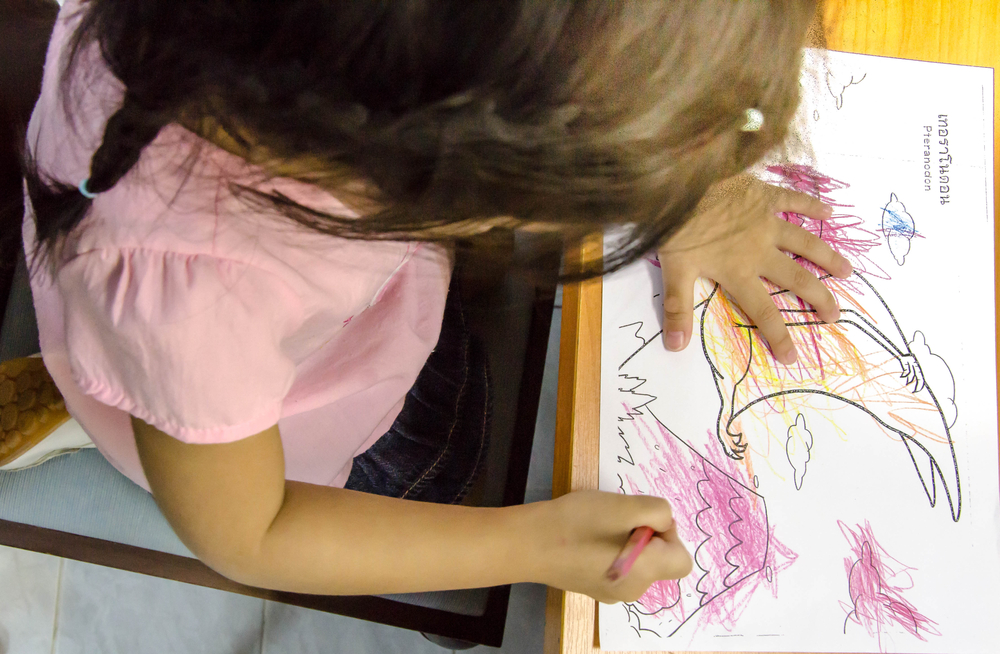Knowledge application Normal Science Worksheets for Ages 7-9
5 filtered results
-
From - To
Explore our engaging "Knowledge Application Normal Science Worksheets" designed for children ages 7-9! These worksheets encourage young learners to apply their scientific understanding in fun and interactive ways. Through engaging activities, students will enhance their critical thinking and problem-solving skills while exploring essential science concepts. Our thoughtfully crafted worksheets cover various topics, promoting knowledge retention and application in real-world scenarios. Perfect for classroom use or at-home learning, these resources support educators and parents in nurturing curious minds. Boost your child’s confidence in science with enjoyable exercises that make learning enjoyable and effective! Visit our page to discover a treasure trove of learning resources!
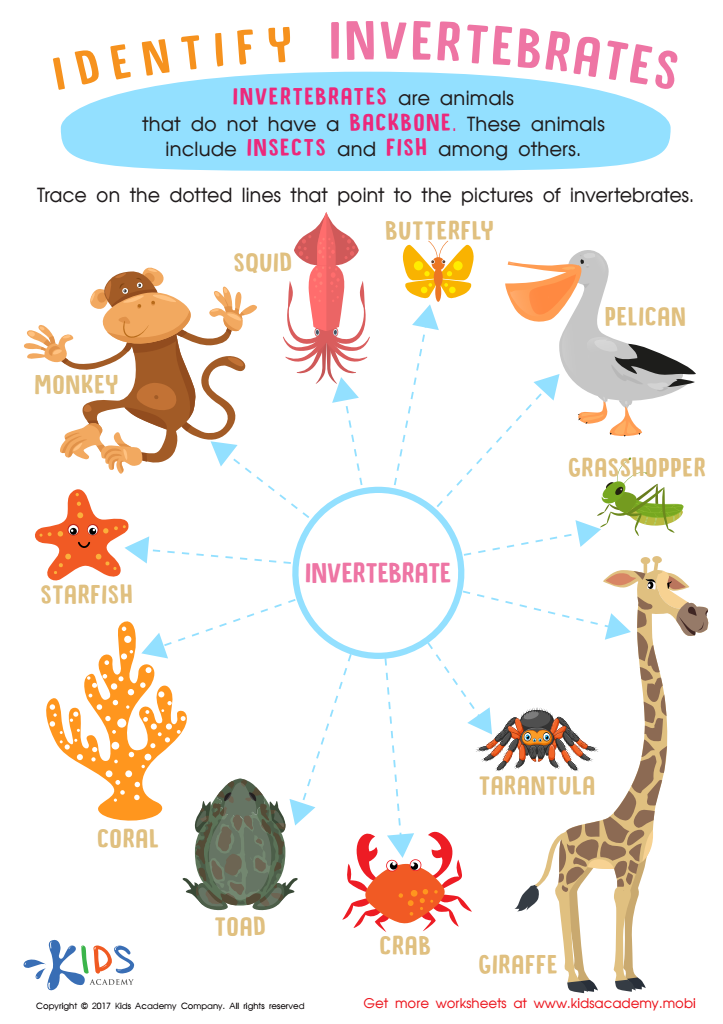

Invertebrates Worksheet for Grade 3
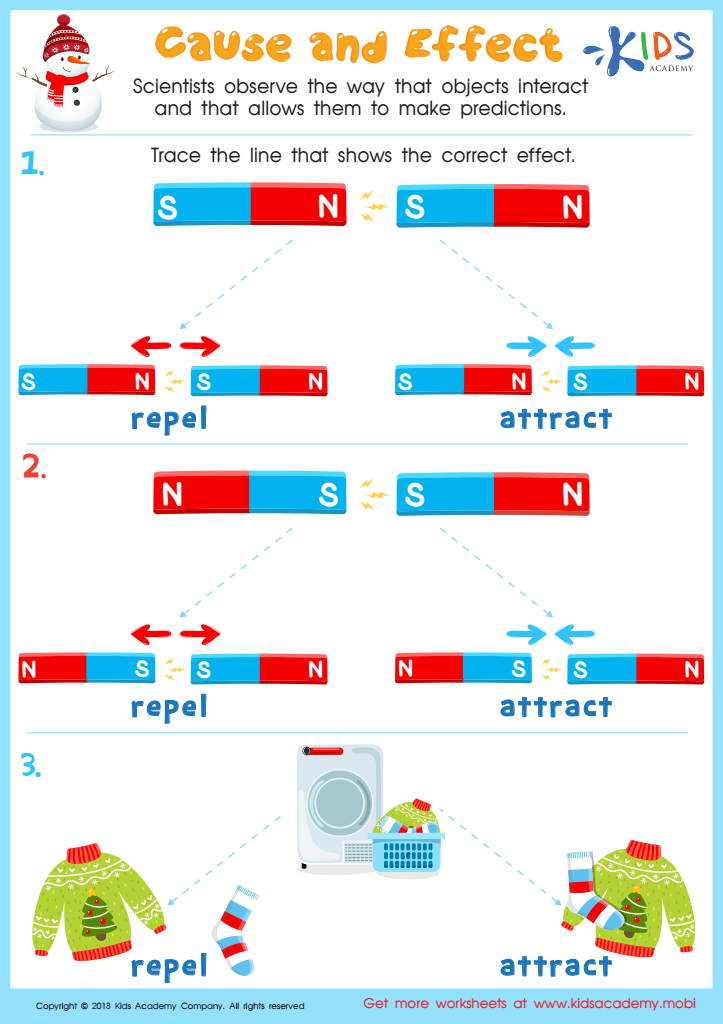

Repel and Attract Magnet Worksheet
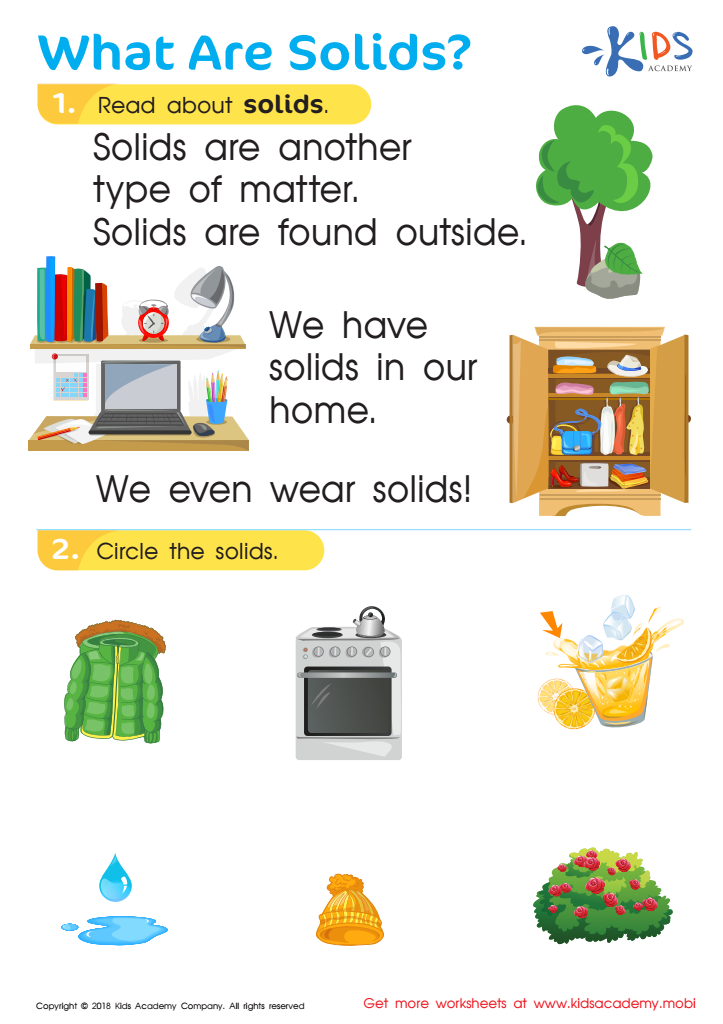

What Are Solids? Worksheet
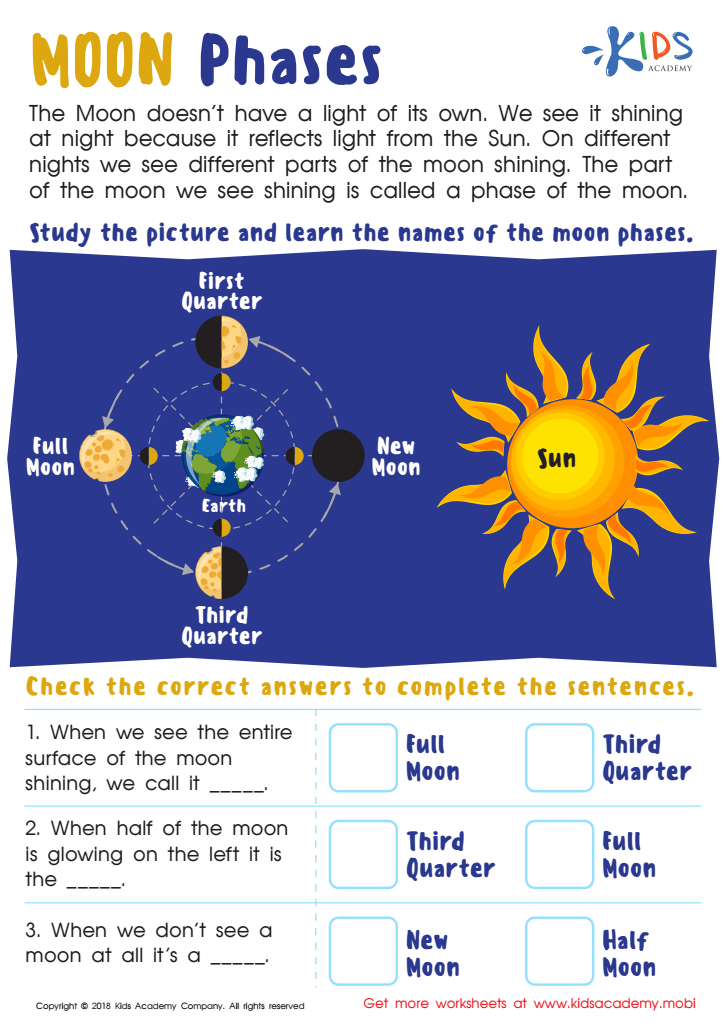

Moon Phases Worksheet
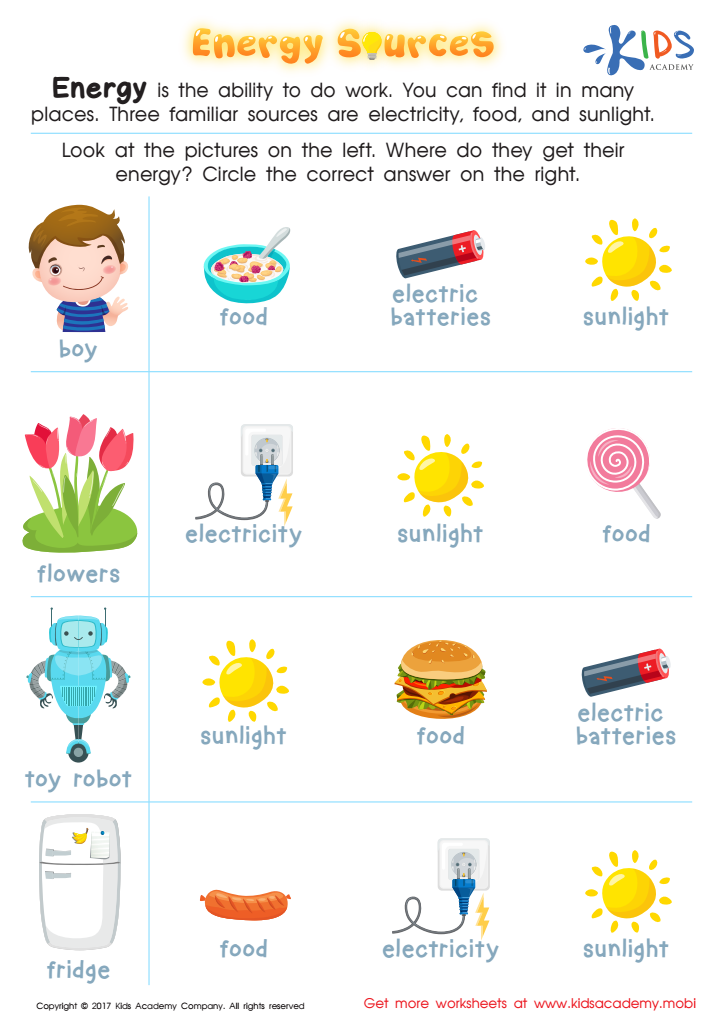

Energy Sources Printable
Knowledge application in normal science is essential for children aged 7-9 as it promotes critical thinking and problem-solving skills. At this developmental stage, children are naturally curious and eager to explore the world around them. Understanding how to apply scientific knowledge helps them make connections between what they learn in school and real-life experiences.
Encouraging knowledge application through hands-on experiments, discussions, and exploration empowers children to think like scientists. It fosters inquiry, promotes collaboration, and enhances their ability to analyze information. By engaging in normal science, children learn the importance of observation, asking questions, and drawing conclusions based on evidence, which are vital skills for their future academic and personal success.
Furthermore, knowledge application can spark a lifelong interest in science and literacy, paving the way for informed individuals who can make sound decisions based on evidence. For parents and teachers, fostering an environment that values science education can help instill confidence in students as they navigate complex topics, preparing them for higher academic pursuits. Ultimately, supporting knowledge application in normal science not only enriches the educational experience but also prepares children to actively participate in an increasingly scientific and technological society.
 Assign to My Students
Assign to My Students





